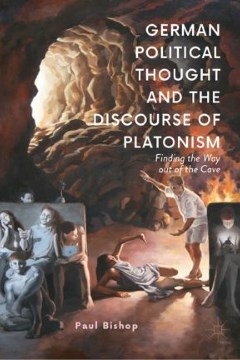Repository | Book | Chapter

(2019) German political thought and the discourse of Platonism, Basingstoke, Palgrave Macmillan.
This chapter contextualizes Plato chronologically and geographically, providing a detailed reading of the allegory of the cave in book 7 of the Republic. The allegory itself provides us with a clue to its political implications: the people in the cave are prisoners; they are sitting there in chains, and while they may think they are free, they are not. These individuals are prisoners who have to be liberated; they have to undertake, literally, a revolution by turning their heads around from the wall of the cave to the fire. For all the mystical connotations in this passage, Plato insists that the dialectic is an essentially rational process, and the state he describes—however odd from a modern perspective—is one ultimately founded on reason.
Publication details
DOI: 10.1007/978-3-030-04510-4_2
Full citation:
Bishop, P. (2019). Plato and the cave, in German political thought and the discourse of Platonism, Basingstoke, Palgrave Macmillan, pp. 25-59.
This document is unfortunately not available for download at the moment.



